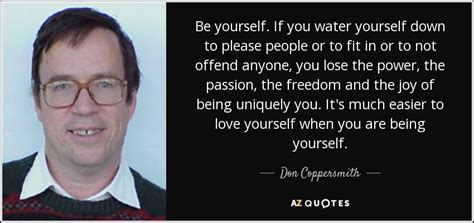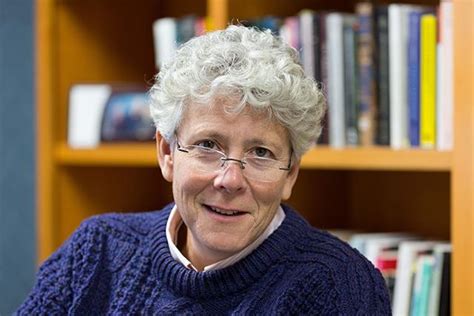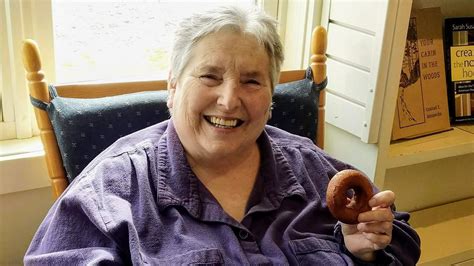A Quote by Benjamin Clementine
There's a part in every person that has a fake self. We've had this since infancy due to our parents and our upbringing.
Related Quotes
It is due to justice; due to humanity; due to truth; due to the sympathies of our nature; in fine, to our character as a people, both abroad and at home, that they should be considered, as much as possible, in the light of human beings, and not as mere property. As such, they are acted on by our laws, and have an interest in our laws. They may be considered as making a part, though a degraded part, of the families to which they belong.
There are a lot of voices inside of us. We have the voices of our parents, our grandparents, our society, our bosses, our own should's and shouldn'ts, and our self-worth is in us, controlling us a lot. When we can get past all of those, and get to the deep, core part of us, there's a voice within our soul that I believe is connected to our Divine or Higher Self. That voice within is there to guide us through all aspects of our lives.
We hug, but there are no tears. For every awful thing that's been said and done, she is my sister. Parents die, daughters grow up and marry out, but sisters are for life. She is the only person left in the world who shares my memories of our childhood, our parents, our Shanghai, our struggles, our sorrows, and, yes, even our moments of happiness and triumph. My sister is the one person who truly knows me, as I know her. The last thing May says to me is 'When our hair is white, we'll still have our sister love.
I think it's true about people now being closer to their parents, since the '60s, really. The parents are no longer from a different planet, the 1950s ideas of American family. We could be friends with our parents. After the '60s, it wasn't like a person smoking pot was what the parents would be appalled at.








































